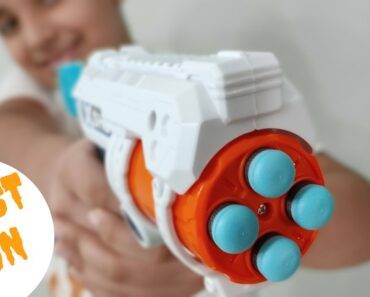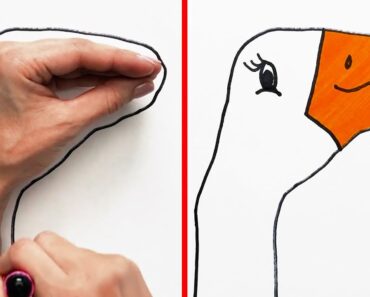A skin abscess is a condition where pus accumulates underneath the skin to cause a boil, which is red, swollen, and tender to touch. Abscess occurs as the immune system tries to flush out bacteria or other infection-causing germs. Children may develop abscess in places where the skin is broken.
Most abscesses burst, drain on their own, and dry out. But if your child’s abscess becomes stiff and painful, or if the child develops a fever or chills, it is good to consult a healthcare provider. Read on to understand more about abscess in children and ways to deal with it.
Causes Of Skin Abscesses In Children
When your child’s skin gets injured or broken, bacteria, or fungus present on the surface might enter the body. The body’s immune system recognizes the threat and sends white blood cells to fight the infection-causing microorganisms.
The white blood cells create a wall around the injured skin to prevent the bacteria from spreading further. It leads to the formation of a hole or a pocket filled with bacteria, white blood cells (pus), and dead tissue, resulting in an abscess (1).
Abscesses can occur due to any pathogen but are mostly caused by bacteria (2). Staphylococcus aureus or the Staph bacteria are common causative pathogens for abscess.
Signs And Symptoms Of Skin Abscesses
Abscesses look like pus-filled pimples that are red, swollen, painful, hardened, and warm to touch. Children mostly develop abscess on the face, armpits, groins, and buttocks; skin on other parts of the body can be affected, too. Skin abscesses are most likely to develop on skin surface that is cut or has an open wound.
A white or yellow dot is visible on top of the abscess, indicating the presence of pus. If the abscess bursts on its own, the pus is released and the wound dries up, your child might experience less pain. However, never burst an abscess on your own and discourage the child from scratching the abscess open.
When To See A Doctor?
Most abscesses heal on their own. In some cases, they cause severe discomfort.
See a doctor if your child has the following signs and symptoms.
- Abscess keeps getting larger
- Multiple abscesses on the body
- Severe pain at the site of abscess and the surrounding tissue
- Fever and chills
- Abscess bursts and oozes blood or pus with a foul odor
Visual inspection and physical examination are usually sufficient to diagnose abscess. If the child has a fever, multiple abscesses, or abscesses filled with blood or foul-smelling pus, then blood tests may be ordered. A sample of pus from the abscess may be collected to determine the type of pathogen present.
Treatment For Skin Abscess In Children
Abscesses usually burst and drain on their own without the need for formal treatment. Those that do not drain on their own or cause additional problems might require the following treatment interventions (3).
- Surgical intervention to manually drain the abscess. Studies suggest that in immunocompetent patients, incision and drainage is generally sufficient for abscess management (4). Numbing medicine is usually applied to the abscess before drainage. Local anesthesia is used in some cases.
- Antibiotic therapy is prescribed if there is poor response to initial drainage, infection of the skin’s superficial layer, or if the child is immunosuppressed (5).
The doctor will suggest post-drainage care based on the child’s case of abscess.
Home Treatment For Skin Abscess
Warm compress is an ideal home treatment since it can help the abscess drain faster (6). Soak a cloth in warm water and place it on the abscess for a few seconds or minutes, depending on your child’s comfort. Do it multiple times a day. Remember not to press or squeeze the abscess while applying the warm compresses.
Keep the area of abscess clean and dry to prevent the spread of the infection. Teach your child to wash their hands every time they touch the abscess. Avoid any over-the-counter medications or topical agents unless approved by the child’s doctor.
Home Care After The Abscess Is Drained
If your child’s doctor has performed an incision and drainage for the abscess, then follow these home care tips to help the wound heal quicker.
- Keep the wound covered at all times.
- Clean the wound daily and change the bandages.
- Do not mix your child’s clothes and towels with others as it might spread the infection.
Call the doctor if your child shows signs, such as fever, redness around the wound, or additional drainage from the abscess.
Complications Of Skin Abscess
In some cases, skin abscess may cause the following complications in children (1).
- Recurrent abscesses may indicate MRSA (methicillin-resistant Staphylococcus aureus) infection, a bacterial infection that needs antibiotic treatment.
- MRSA may cause blood poisoning and the spread of bacterial toxins to various parts of the body (4).
- Severe abscess infection, along with blood poisoning, may increase the risk of sepsis.
These complications mostly occur in children with compromised immunity or subdued immune system. Timely drainage of the abscess and subsequent antibiotic treatment can reduce the risk of complications.
Prevention Of Skin Abscess In Children
You can protect your children from skin abscess by teaching good hygiene.
- Train your children to wash any skin wound immediately with water and soap.
- Do not let your children poke or scratch any skin wounds.
- Keep all wounds and cuts clean and dry. Cover them with a bandage to prevent the ingress of germs.
- Do not mix your child’s towels and clothes with others to prevent the accidental spread of infection.
Skin abscess is a common infection in children. When detected early, it can be treated at home. However, teach children how to tend to wounds and cuts to prevent this infection. Also, teach your children a few essential hygiene habits to keep them protected.

































